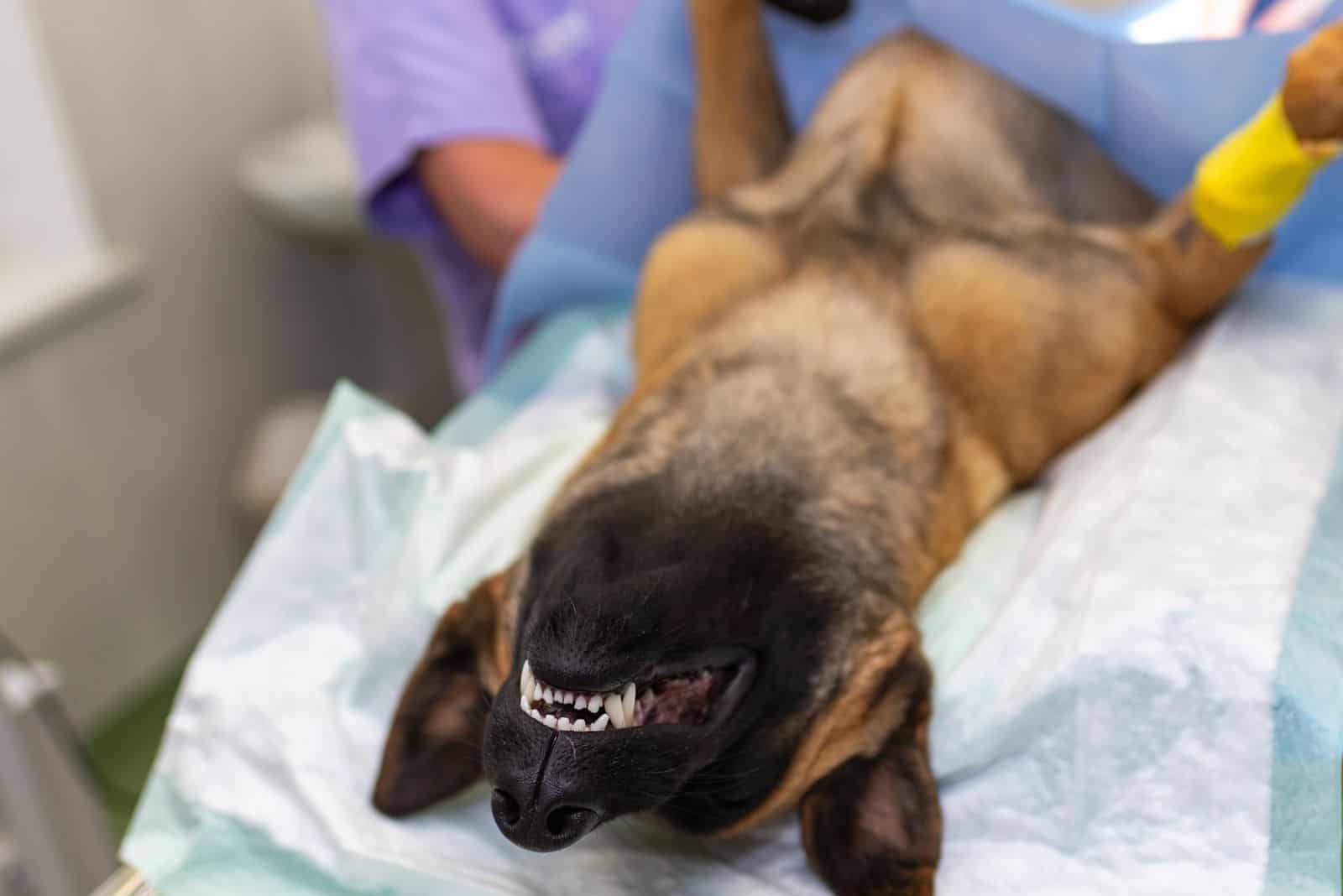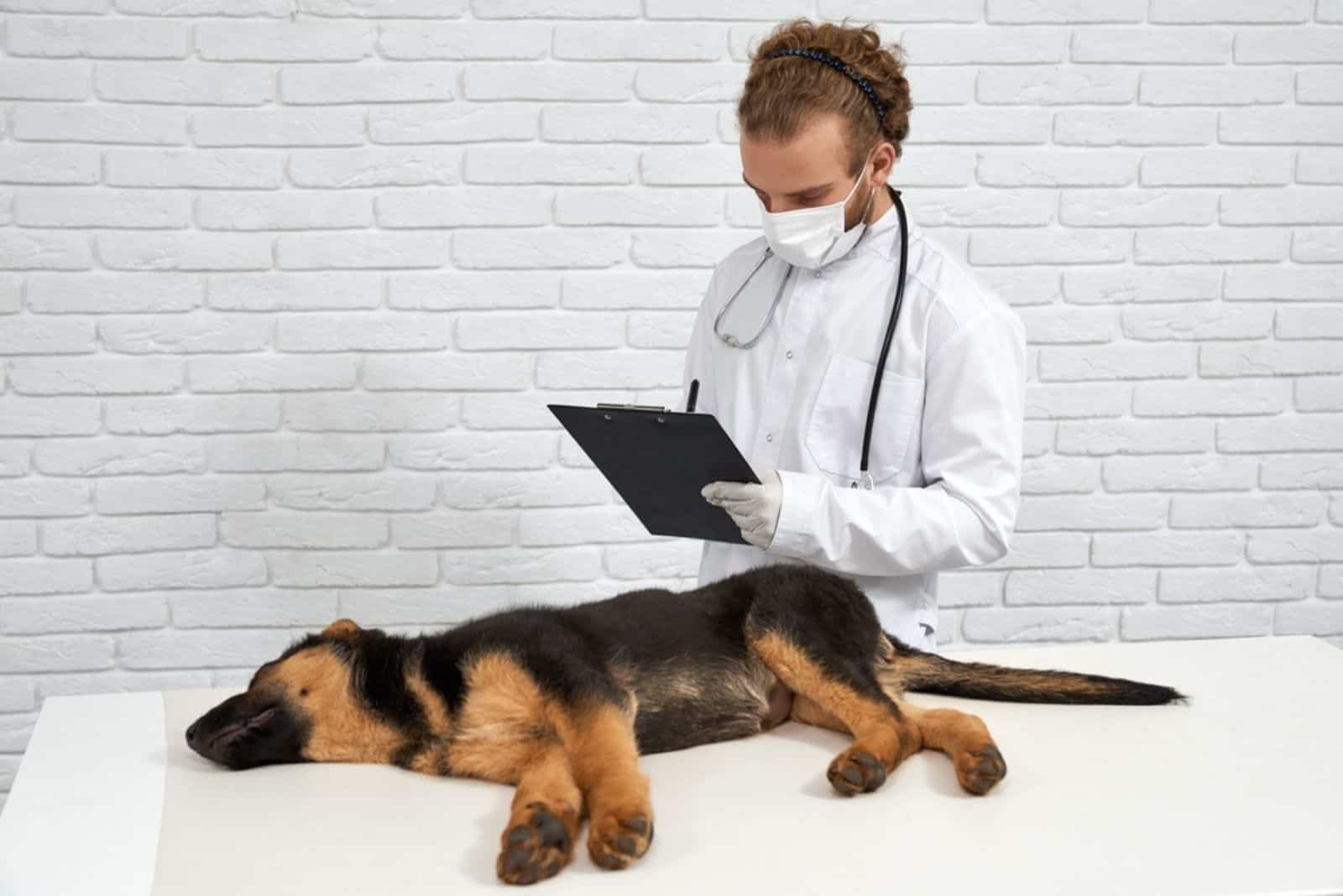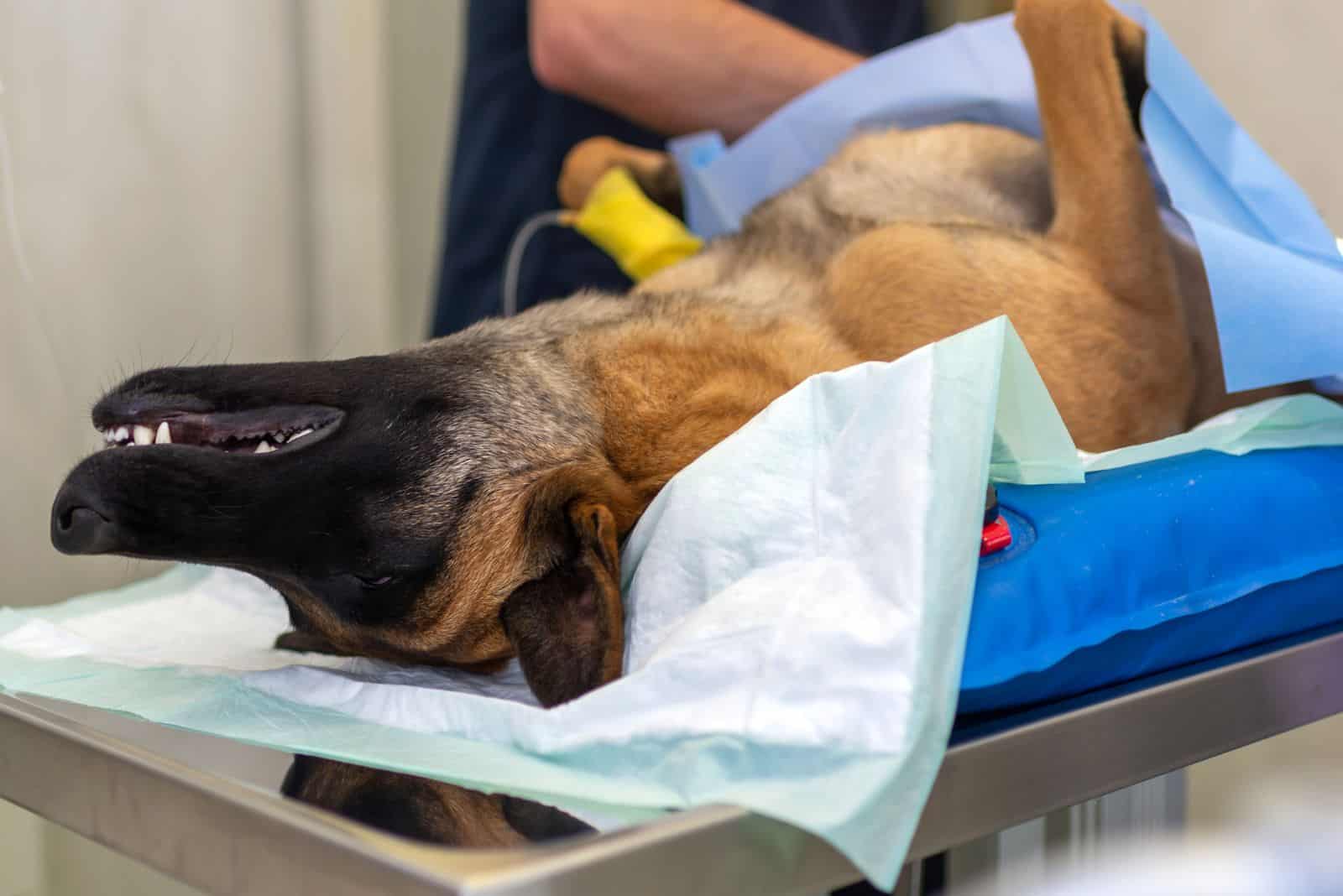Are you considering spaying your German Shepherd? Well, you’re not alone! Many pet parents face this decision and it can be tough to know what’s best for your furry friend.
But don’t worry, we’re here to help break down the pros and cons of spaying your German Shepherd in a fun and easy-to-understand way.
From preventing unwanted pregnancies to promoting longevity, we’ll cover all the benefits and potential downsides of this important decision.
So, grab a treat for your pup and let’s dive in!
5 Pros Of Spaying A German Shepherd
There are plenty of pros and cons to each subject, but when it comes to German Shepherd spaying, the pros outweigh the cons.
Spaying a GSD, or any other dog, can have a lot of benefits for their health and wellbeing. Curious to find out what kind of benefits there are? Keep on reading!
1. Prevents Unwanted Pregnancies

Say goodbye to surprise litters and hello to peace of mind with dog spaying!
Are you worried that you’ve noticed early signs of pregnancy in your German Shepherd dog? Well, let me tell you that after you’ve spayed your dog you won’t ever have to worry about this again!
Spaying your furry German Shepherd companion will keep her from having any unwanted puppies. You know what else? No more worrying about finding homes for little ones or paying unexpected vet bills.
This procedure is like a magical shield that protects your lovely pup from becoming a mom before she’s ready.
2. Reduces The Risk Of Certain Behavioral Issues
Many will agree that spaying your female German Shepherd dog can be like giving her a personality makeover! However, some owners and breeders would argue that those claims are false. Well, all dogs are different and some may change their behavior after spaying, some may not.
Your GSD will most likely stop with odd behaviors such as air humping.
Constant whining and fierce growling at other males will also stop because she won’t be in heat. Additionally, spaying may ease her hyper behavior.
Not only that, spaying also helps to reduce the risk of certain behavioral issues like roaming and marking territory, which can be a result of a female dog’s strong maternal instincts.
You see, spaying female dogs eliminates the hormonal fluctuations that can cause these issues, leaving your pup with a more balanced temperament.
It’s like hitting the reset button on her hormones, while giving her the chance to be the best version of herself.
3. Reduces The Risk Of Health Issues

Not only does it prevent unwanted pregnancies, but spaying also reduces the risk of certain health issues that can come with being a lady dog. Just like how humans get period cramps, dogs also have hormonal fluctuations that can cause “period” discomfort.
But with spaying, your pup won’t have to suffer through those “time of the month” struggles anymore.
Additionally, spaying can also reduce the risk of certain types of cancer, such as ovarian, uterine, and mammary cancer. Other than that, it prevents disease like:
- Uterine infections
- Hernias
- Pyometra
Spaying your German Shepherd is like giving her the ultimate health check-up in the long run!
4. No Heat Cycles
Say goodbye to heat cycles and hello to a stress-free life for both you and your furry friend!
That’s right, spaying your female German Shepherd means that there are no more messy, unpredictable, and uncomfortable heat cycles for her (and for you).
And the best part is, your dog won’t have to deal with any unwanted suitors showing up at your doorstep. She won’t even feel the need to jump fences and roam around to find a boyfriend.
But, you may be wondering “Can a dog get pregnant when not in heat?”. The answer is no, female doggos can only get pregnant when they are in heat, which is why spaying eliminates the risk of unwanted pregnancies altogether.
So, even if she accidentally mates with another dog, nothing will happen afterwards.
5. Promotes Longevity
Taking all of these pros into consideration, it is obvious that spaying a German Shepherd can lead to a longer and healthier life. It eliminates heat cycles, stress, and physical strain they can cause on a dog’s body.
Studies have shown that spayed dogs have a lower risk of developing certain types of cancer and other diseases, which can add years to their lifespan.
Furthermore, spaying a dog can reduce the risk of certain behavioral issues, such as roaming, which can be dangerous and increase the risk of accidents or injuries.
For example, you won’t have to deal with getting two dogs unstuck and you won’t have to worry about your female dog becoming injured during or after mating.
5 Cons Of Spaying A German Shepherd
Even though pros of spaying a GSD usually outweigh the cons, it is important to be aware of several cons that some dogs may experience.
If you want to breed German Shepherds, then one of the cons would be the inability to concieve. But, that’s not what we’re going to talk about now.
Let’s talk about some serious, but very rare cons of spaying procedure in these pawsome dogs.
1. Weight Gain

You can’t tell if your dog is pregnant or maybe she got fat? Well, if you had her spayed, she probably turned into a fat German Shepherd. Hold up, it is not necessarily due to spaying.
The fact is, spaying does slow down a female dog’s metabolism, making her more prone to gaining weight. It’s like hitting the snooze button on your dog’s metabolism, and before you know it, the pounds start to add up.
But, this does not mean she has to be fat.
Becoming fat or developing obesity is because your GSD does not have enough physical exercise, not because she simply got spayed.
A little extra weight can be easily managed with regular exercise and a healthy diet. Just think of it as a fun opportunity to bond with your dog while you both work on getting fit and healthy together. How about going for a hike?
2. Increases The Risk Of Hormonal Disorders
Spaying your German Shepherd is taking away her hormones (to some extent), and her hormones are like the conductor of an orchestra, they keep everything in harmony. So, when you remove them, it can cause an imbalance.
Although not common, it can lead to a higher risk of hormonal disorders, such as canine hypothyroidism. The biggest danger lies in spaying your pup too early.
If done too early, spaying can affect the GSD growth and size, making them smaller than they would have been otherwise.
3. Increases The Risk Of Orthopedic Conditions

Spaying your GSD too early can lead to an increased risk of orthopedic conditions, such as hip dysplasia, which is when the hip joint doesn’t develop properly.
It can also affect a dog’s bone density and increase the risk of conditions like canine osteoarthritis, which is when the joints become worn down.
Why does this happen? Well, it is because of the removal of the ovaries (spaying). They are responsible for producing estrogen, and once removed can lead to a decrease in the hormone.
Estrogen plays an important role in maintaining bone density, and a lack of estrogen can cause a decline in bone density, leading to an increased risk of conditions such as osteoporosis.
4. Increases The Risk Of Urinary Incontinence
Spaying can affect the muscles and nerves that control a dog’s ability to hold urine, making it more difficult for her to do so. In some cases, this procedure can affect the muscles and nerves that control a female dog’s ability to hold urine, making it more difficult for her to do so.
It’s like taking away the “pause button” on a leaky faucet, once it’s gone, the water just keeps flowing. So, if you notice your spayed female pup peeing a lot, you may get a hint of what may have caused this. She may also act a bit weird due to the constant urge to pee.
But just like a leaky faucet can be fixed, urinary incontinence can be managed. There are several treatment options available, such as medications and supplements, that can help control incontinence.
5. Risk Of Complications During Surgery
One of the main risks associated with spaying a German Shepherd is the potential for complications during the surgery itself.
Although super-rare, your dog may experience bleeding, infection or allergic reactions during or after the surgery, it is important to be aware of them.
After surgery, you might notice a lump around the incision, which is normal, but if it becomes red or swollen, it is best to contact your good ol’ vet!
The healing process can take a few weeks, and it’s important to keep an eye on your dog’s activity level and help them take it easy during this time.
Another thing to keep in mind is that your GSD should be kept calm after the surgery, as jumping can cause the incision to reopen.
Final Thoughts
So, what is the final verdict on pros and cons of spaying your German Shepherd? Well, it’s a bit like a choose-your-own-adventure story!
On the bright side, spaying can prevent those surprise litters, help keep certain behavioral issues at bay, and even add a few extra years to your pup’s life. Plus, let’s be real, who doesn’t love a cuddly dog?
But, it’s not all sunshine and rainbows. Spaying can cause weight gain, hormonal imbalances and even increase the risk of certain health conditions.
Fear not! With the guidance of a trusted vet, and spaying at the right age, these risks can be minimized. And, at the end of the day, the decision is ultimately up to you and what you feel is best for your furry companion.
